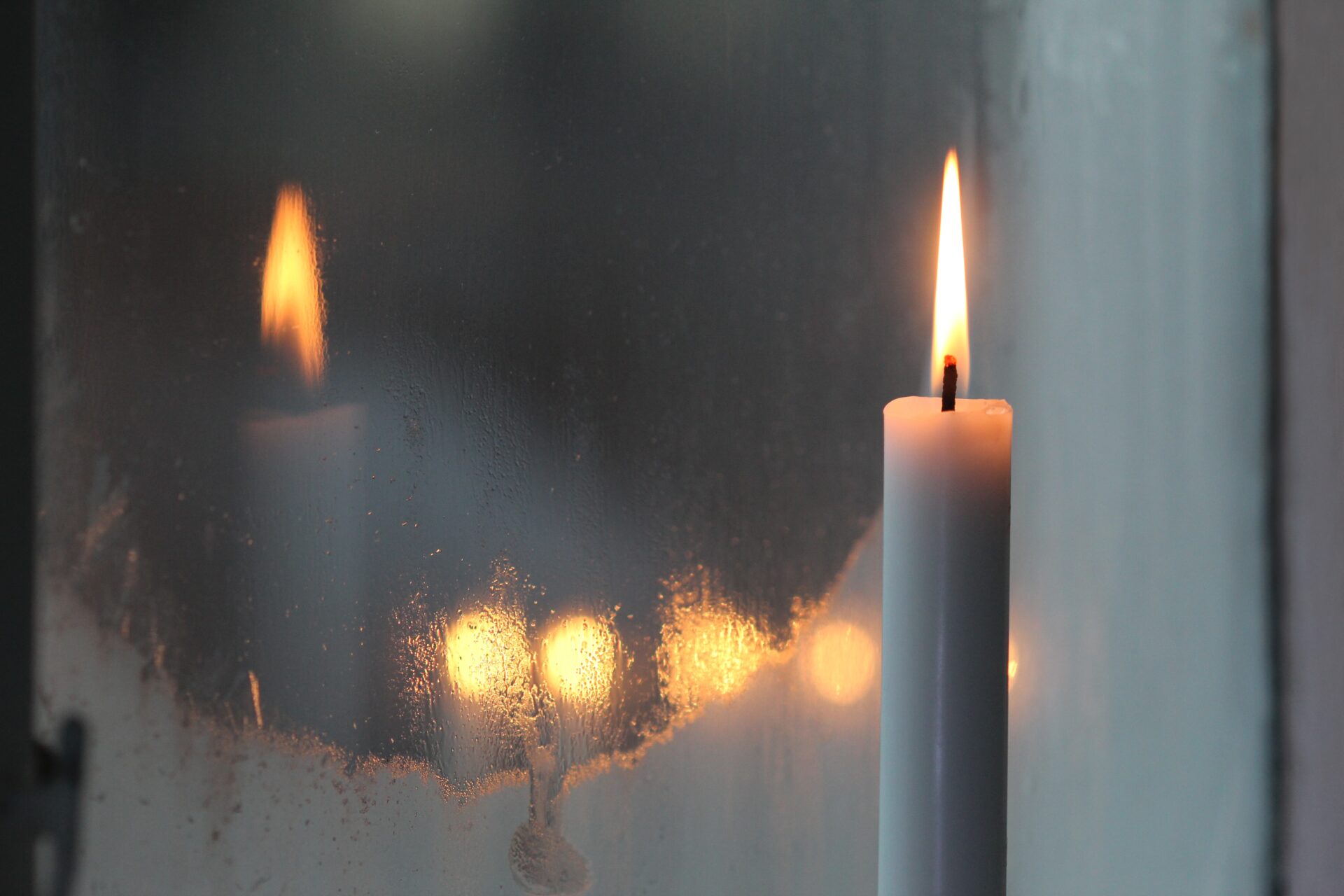
A candle reflected in a frosted window.
Photo by Anne Nygard on Unsplash
This year I am lighting a new Advent candle
In the waiting for Emmanuel, a God who is with us, we realize that there are times when God is not yet with us. There are stretches of time like Lent, and also Advent, where we yearn for a deeper connection with the divine but are told to wait a little bit longer. Similarly, grief is an emotion that ignores the confines of traditional time and usually lasts a little longer than we’d like.
People often confuse grief as the opposite of love, but they are companions and co-conspirators. Grief stands alone as a unique human experience that comes alongside the more pleasant feelings of hope, peace, joy, and love. But grief is guaranteed. If you love anything, as Jesus loved, you will experience grief. “Doesn’t everything die at last, and too soon,” the late Mary Oliver wrote. The practice of religiosity allows people to engage with human emotions in an expansive and sacred way. We must find new ways to make our grief sacred because simply, there has been so much of it.
And because as theologian and activist Sandy Ovalle Martínez shares: “Western Protestant Christianity mourns fast. It dislikes grief. Verses that say not to ‘grieve as others do who have no hope’ (1 Thessalonians 4:13) are often interpreted as guideposts to limit the length and depth of grief.” During my time serving as a hospital chaplain, I saw firsthand the distant and sterile ways death is approached. In particular, White Christian communities often brush off grief with hopes of resurrection and neglect to acknowledge that sometimes Good Friday lasts for years.
During the pandemic, the pastoral team at my congregation decided to record weekly Advent candle lighting videos so congregants could follow along at home and light their own wreaths each week. This was one of the many creative liturgical pivots that only made sense in that trying liminal time. It became a cherished practice within the community. But what it looked like on the back end was rather comical.
This year, I am adding an extra candle to my Advent wreath: Hope, Peace, Joy, Love, and Grief. Advent is most commonly known as a season of waiting, but it is also a season of grief.
But what happened when we lit the Christ candle was unexpected. The filming frenzy had actually created something more powerful than we imagined. When all the candles were lit, in an empty sanctuary, before Advent had even begun, we finally grieved.
We exhaled and missed our congregation. We missed our families that we wouldn’t be traveling to see. We missed the people who died that we knew. We missed the people who died that we didn’t know. In the midst of liturgical rehearsal and creation, we honored the silent presence in our hearts: grief.
Grief comes in waves, the saying goes, and Advent is a season of swimming in the open ocean uncertain when you’ll hit the shore. Yearning for the coming of Christ, we also yearn for solace in our hearts and freedom in our spirits.
The Holy Family was surrounded by animals, angels, magi, and also grief. They held grief as refugees who lost their home. They embodied the grief that occurs when lives are forever changed by the violence of Empire. It is very likely that during the pain and anguish of childbirth Mary walked the thin line between love and pain where grief also resides. Ultimately, in the coming of the Christ child, along with the Holy Family, we all meet grief at the cross.
And so, this year, I am adding an extra candle to my Advent wreath. I’m grieving the loss of lives in the Middle East. I’m grieving the deaths due to gun violence and police brutality and anti-LGBTQ violence in America. I’m grieving the parts of our country that are divided by hatred and partisanship. But mostly I am grieving that our spiritual communities are not always prepared to host a space of deep mourning.
So, this Advent, let’s try a new thing: light a new candle and grieve together.
The views expressed are those of the author and not necessarily those of American Baptist Home Mission Societies.


